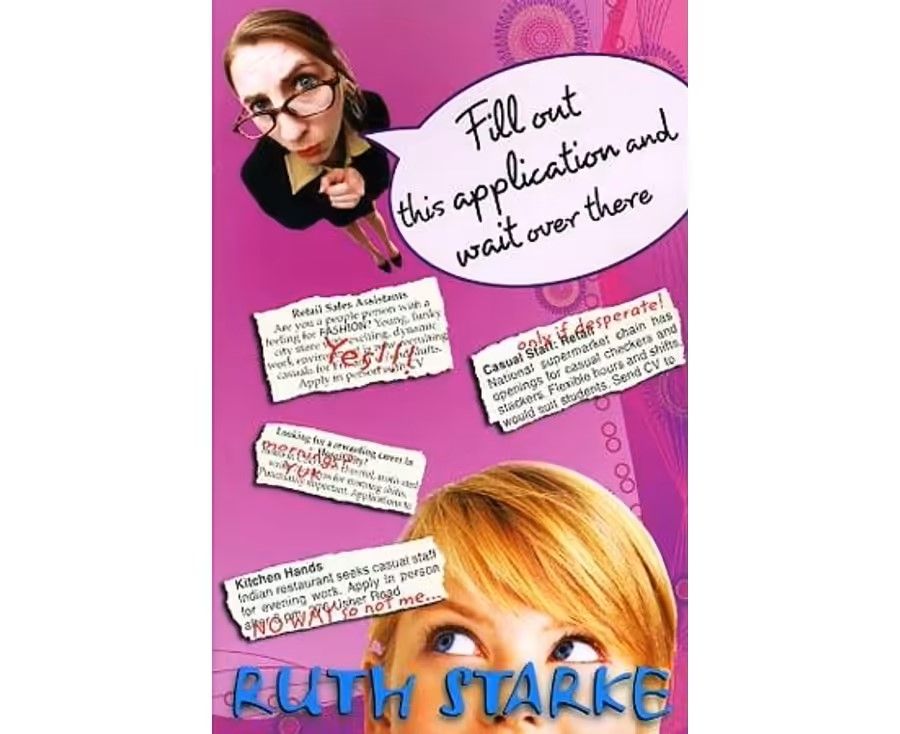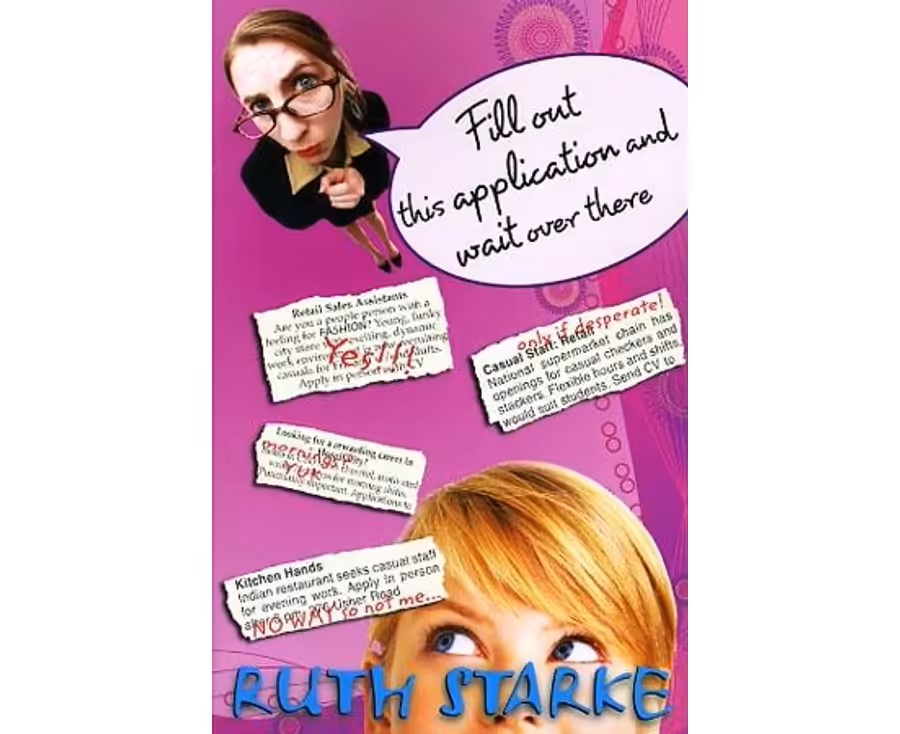
- Free Article: No
- Contents Category: Fiction
- Review Article: Yes
- Article Title: Witty pathos
- Online Only: No
- Custom Highlight Text:
Hailee Moxie, aged seventeen, has just left high school. On New Year’s Eve her boyfriend dumps her, by SMS – not an auspicious start to the year but a good opening for Ruth Starke’s new novel, Fill Out This Application and Wait over There. Hailee records the events of the next twelve months in her diary as she applies for jobs intended to augment the paltry balance in her ‘Escape to Asia’ bank account.
- Book 1 Title: Fill Out This Application and Wait Over There
- Book 1 Biblio: Omnibus Books, $19.99 pb, 310 pp
- Book 1 Cover Small (400 x 600):

Hailee goes through the relentless and often demeaning process of filling out applications and waiting to find out if she got the job. She botches the interview for a position with what she refers to as TBHCITW (The Biggest Hamburger Corporation in the World) but lands a job at SpendUp, the local supermarket. It’s thirty years since I held the obligatory supermarket job, but Starke’s astute observations instantly took me back to the tyrannical hierarchy and the petty politics of that strange world of customer service.
Just as Starke’s previous novels NIPS XI (2000) and NIPS Go National (2003) placed Lan, a naïve young character in a grown-up world of new and unfamiliar experiences, Hailee finds herself on a steep learning curve as she comes to terms with the expectations and responsibilities of working life and the way people in the workplace behave towards each other. Writing for teenagers instead of children allows Starke to adopt a more knowing tone, but the underlying sweetness and wit, and the subtle observations and the sharpness of her characters, remain as powerful as in her previous work.
Scattered through Hailee’s diary is a host of likeable or recognisable characters, including some powerful ones who make her life miserable. The family that shares her ‘weary little suburban experience’ has just enough quirkiness to be funny but not enough to be pushed beyond credibility. Hailee lives with her mother and brother. Her father, who lives alone, is a middling theatre reviewer for the local paper and a confirmed klutz when it comes to technology. These characters provide humorous interludes, but they also help to illuminate Hailee’s psychology. She is clearly her parents’ daughter.
The story, with its diaristic style, sustains itself across the year as Hailee supplements her employment at Spend-Up with a number of other part-time positions that introduce new environments and new characters. If the story threatens to stall, it is in the winter months of June and July, but just when it could run out of steam, Hailee gets a job in charge of the Community Bulletin Board on the local paper. Here, Hailee encounters a new range of characters, including the acerbic chief news editor, Kate, and, on the other end of the phone and fax machine, the great unwashed. But it is not just the injection of fresh energy, new characters and a different dynamic that works here: it is the impact this new job has on Hailee. There is plenty of scope for humour at the local paper, but mixed in with it are moments of pathos as Hailee begins to realise how we all connect with members of our families and workplaces and local communities. This is the place where we see Hailee begin to grow up.
Perhaps the real strength of this book, beyond the clever humour and truthfulness of the way it represents that daunting first year out of high school, is Starke’s decision not to provide us with a neat ending. By the end of the year, Hailee is eighteen, legally an adult but in many ways still immature. There is no magic transformation, and that’s a relief. Hailee still sees herself at the centre of the world. The difference is that she’s starting to see the world through different eyes. For the first time, she feels as though she knows who she is, rather than inventing a version of herself for application forms. Like most of the rest of the book, though, it is the reader who can see the real change coming more clearly than Hailee herself.
This is a funny, perceptive and engaging novel. Starke writes with a convincing ear for the teenage voice and a strong sense of how not to exaggerate a story. The book doesn’t set out to change your life, but it may alter the way you regard the young people working in supermarkets.


Comments powered by CComment